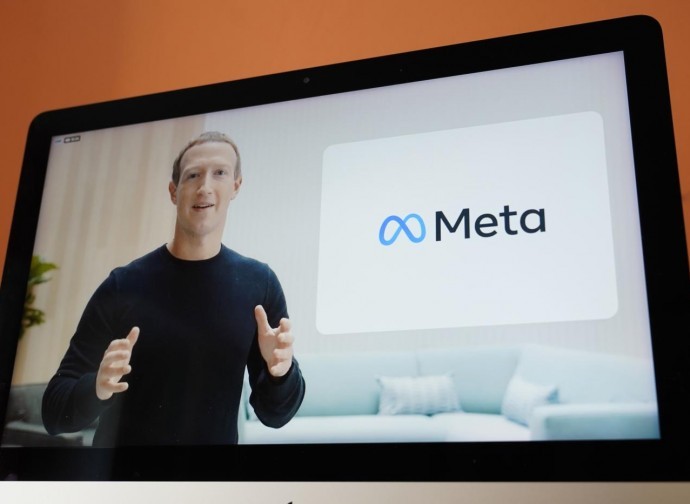Meta, the risks of Zuckerberg's virtual world
A parallel life in a parallel universe. This is not a science fiction film, but the project of Mark Zuckerberg, founder of Facebook and now of Meta, a company that will build a new "metaverse". Can we live in a virtual reality, with an avatar acting in our name and on our behalf? The (mental) risks we run today with social networks would be amplified.

Only the most clueless or the least informed could be astonished by the words of Mark Zuckerberg, the new founder of Meta, formerly holding company Facebook Inc, whose name he changed to reaffirm his mission: to create a metaverse. His idea has been tested for several years: first with the creation of Libra and Diem, two cryptocurrencies, created not to compete with Bitcoin, but to become the metaverse's currency of exchange; then with Horizon Workrooms, a virtual reality app for remote meetings, where each person can appear as a tailor-made avatar with which to live a completely digital life.
But what is the metaverse? According to its philosophical origins, the term was coined by author Neal Stephenson to refer to a new dimension where physical people can move, share, and interact through personalised avatars. For those who have seen it, the closest reference to this reality is the world seen in Ready Player One, Spielberg's film where people, in order to escape the decadent life in their slums, immerse themselves in a virtual world where they take part in entertainment and work activities. In the film, a very complex piece of technical hardware was required: for us, instead, the Meta Quest, the new Oculus Quest, VR goggles with which it is now possible to play video games in the first person, might suffice.
The world of video games is in fact much closer to this reality than the applications developed to date by Meta. Fortnite, Minecraft, and Roblox are the most pertinent examples: video games where you can have global social relations, where you can hold a social position, where you can attend concerts (like the one of Ariana Grande on Fortnite) or fashion shows (like the ones held during the lockdown on Animal Crossing: New Horizons). The Facebook – oops, Meta – apps are still a bit immature from a graphic point of view, but they represent the first attempt to build a reality outside of reality.
But Mark's plan is probably not to 'oppose' virtual reality to analogue reality, but to integrate both into a new hybrid lifestyle. In this sense, the marketing of Ray Ban Stories, glasses built by Essilor Luxottica to take photos and make short videos directly from the frame, to then share them directly on Facebook or Instagram, is well explained. The best way to move into the metaverse is to perceive it as a discrete but integrated part of the old “in the flesh” reality.
We know, however, that Zuck, as well as the whole company, has been under fire for months due to the increasingly pressing questions about the psychological health of the platforms' members, after the rumours that have risen from the Wall Street Journal and the investigations undermining its foundations. In September, Zuckerberg announced a $50 million fund for projects with external partners to explore the implications of this future world. However, we are aware of the strategy that Facebook has been pursuing for the past 15 years: integrate first, test later. The preventive analysis of the possible political, social and psychological implications of his creations has never been at the top of the list of his priorities.
It is hard to imagine that a company capable of turning over hundreds of billions a year is not capable of building an infrastructure that until a few days ago seemed dystopian: creating a true virtual reality, where one can move, interact, and work. "The metaverse embodies the new era of the Internet", says Zuckerberg, who is ready to invest ten billion dollars a year this year (and in the years to come) to start hiring new personnel to support the project (in Europe alone, hiring more than 10,000 people), but there is no timetable to date, other than the broad limit of ten years.
To date, the only risk that is being tackled is that relating to privacy and the use of data collected by Facebook, Instagram, WhatsApp, and Oculus to integrate advertising space into the metaverse. This is certainly a focal point, but perhaps not the most important one to focus on. There is no doubt that the new use of media through fixed and mobile devices is changing behaviour and generating new generalised dysfunctionalities. We are proceeding at a speed that we are not able to manage, faced as we are with one of the fastest technological changes. Let’s see what this new virtual reality will lead to, but there is no doubt that being sceptical about it is a sign of discernment.


